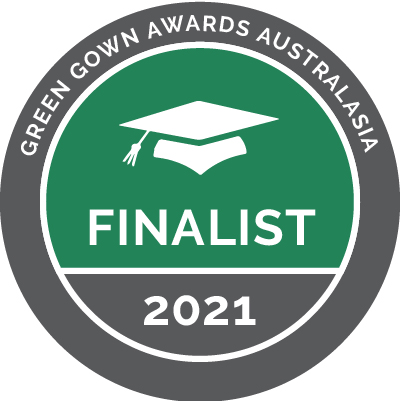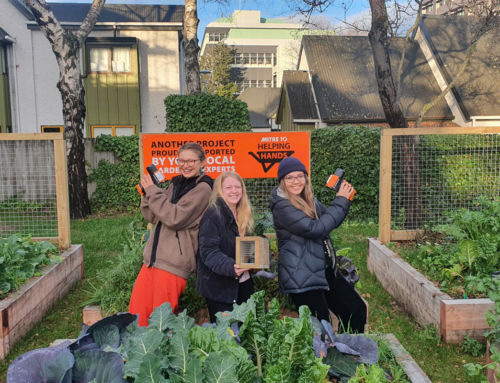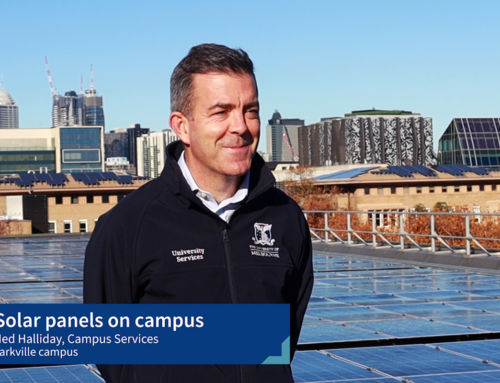Building back literally and figuratively to achieve a better future
The University of Tasmania (UTAS) has increasingly upped its commitment to deliver/exemplify sustainability since late 2019 that has both enforced and been enforced by proactive and productive responses to the COVID-19 pandemic. There has been a step change for broader and deeper action to deliver a leading sustainable university that addresses all aspects of sustainability, including financial in these difficult times for our sector.
UTAS also has worked to support increased community resilience. We have undertaken applied research to contribute to State Government-led initiatives and contributed our collective expertise of staff and students to deliver programs and projects available to all. We have done these in partnership and as the lead. Our focus has included wellbeing, skills development, community connection, and educational attainment. We have made these available in many ways to our community, but predominantly online. For those without adequate digital access, we have provided equipment and advocated for improved services.
> The initiative
The University of Tasmania (UTAS) has increasingly upped its commitment to deliver and exemplify holistic sustainability over the past 11 years, but in 2020 there was a significant step change for broader and deeper institution-wide action to deliver a leading sustainable university and support a more resilient community. That this has unfolded during a global pandemic has provided an opportunity to ensure that sustainability is a framework for responses that both deliver immediate and longer-term change. To deliver a clear direction to embed sustainable thinking and action across the University, a coordinated approach led by our senior management has been unfolding as described below.
UTAS has proclaimed a strong commitment to a holistic understanding of sustainability and resilience underpinning the need to provide leadership in our sector and communities, as evidenced through:
- The University’s statement of values and Sustainability vision and mission
- Our collective commitment to be an exemplar and have a positive impact around sustainability as included in our new University Strategic Plan (2019), specifically naming up the UN Sustainable Development Goals (SDGs) as a framework to guide our actions and supporting a new principles-based Sustainability Policy and Framework in 2020.
- The Sustainability Committee playing a key role in enabling achievement of UTAS sustainability objectives.
To empower further holistic and targeted action, the University Executive established a new role of Sustainability Mission Integrator (SMI) in 2020 and elevated the Sustainability Manager to an Associate Director to undertake the role. The SMI is one of five members of the high-level Sustainability Steering Group alongside the Vice-Chancellor and other senior staff who ensure bi-monthly review of progress. To ensure sustainability is a key focus across all areas of the University, the SMI is included in the Chief Operating Officer Executive group and is the Chair of the University-wide Sustainability Committee. The SMI also regularly reports to the University Executive Team and the University Strategic Forum to provide updates on progress and receive feedback on efforts and focus areas.
UTAS tracks our sustainability performance through use of the Sustainability Tracking, Assessment and Rating System (STARS). We achieved a Silver rating in 2020 and are on track to Gold in 2022 and seek Platinum in 2024. With only 11 (out of 1,100) global universities achieving a Platinum STARS rating, this is a significant and far-reaching aim.
UTAS support for sustainability is evidenced by the recent growth of the Sustainability Team despite budget constraints resulting from the global pandemic. In addition to the new Associate Director – Sustainability role, two Sustainability Officers were promoted to a more senior level in early 2021 to focus on additional engagement initiatives and operational improvements. A new full-time Horticulturalist and Community Gardens Coordinator role was also approved in 2021 to ensure that we can build on the success of our gardens focus for the health and wellbeing of students and staff as community gardens build community and can contribute to addressing food insecurity issues of our students.
Regarding pandemic responses and recovery, UTAS has certainly stepped up to actively support our communities to work together to understand and respond to the challenges presented and, importantly, take advantage of the opportunities available to build back better. This is exemplified in many ways, including high level participation in government and community data collection, planning and delivering initiatives, and monitoring progress.
UTAS has played a key role as part of the Tasmanian Premier’s Economic and Social Recovery Advisory Council (PESRAC) established to provide advice to the Premier on strategies and initiatives for short to medium and longer-term recovery from COVID-19. Our Vice-Chancellor, Professor Rufus Black is one of nine individuals from the Tasmanian business and community sectors to share their experience, knowledge, and resourcefulness as leaders and that of their organisations to contribute to Tasmania’s pandemic recovery. Our VC participated in a short video explaining the value for the wellbeing of all members of our communities. A key focus is not just about reaction to the immediate pandemic impacts, but truly building back better for the long term through 52 recommendations underpin a recovery strategy that focuses equally on economic, environment and social sustainability. One recommendation notes that the recovery strategy should focus on Tasmanian priorities but be UN SDG-aligned, which accords with the central role of the SDGs in the UTAS strategic plan.
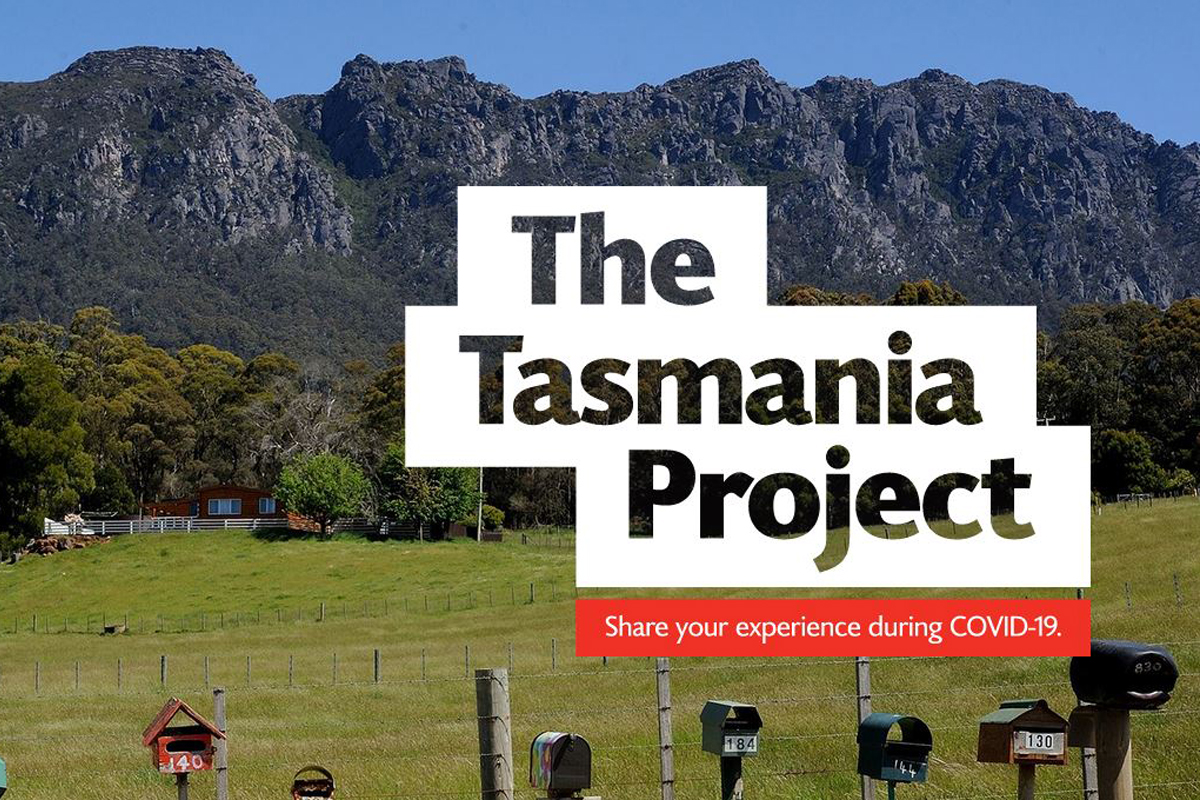
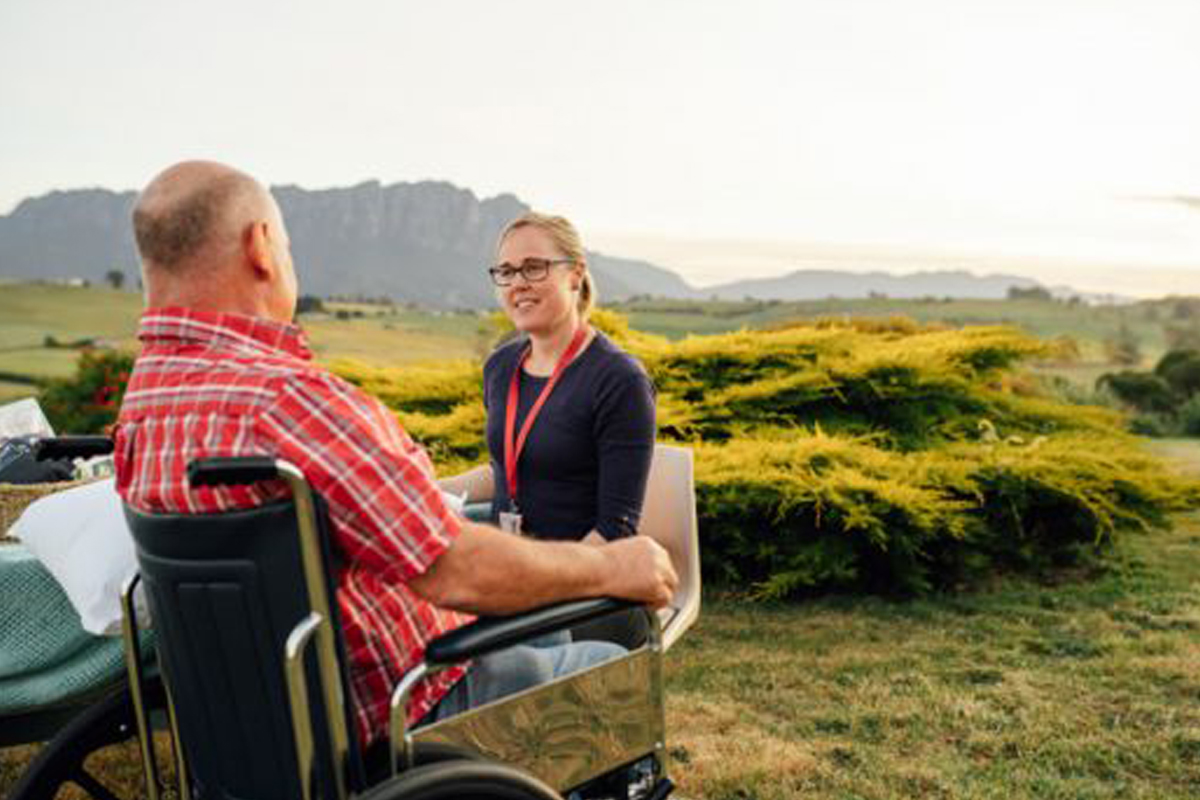
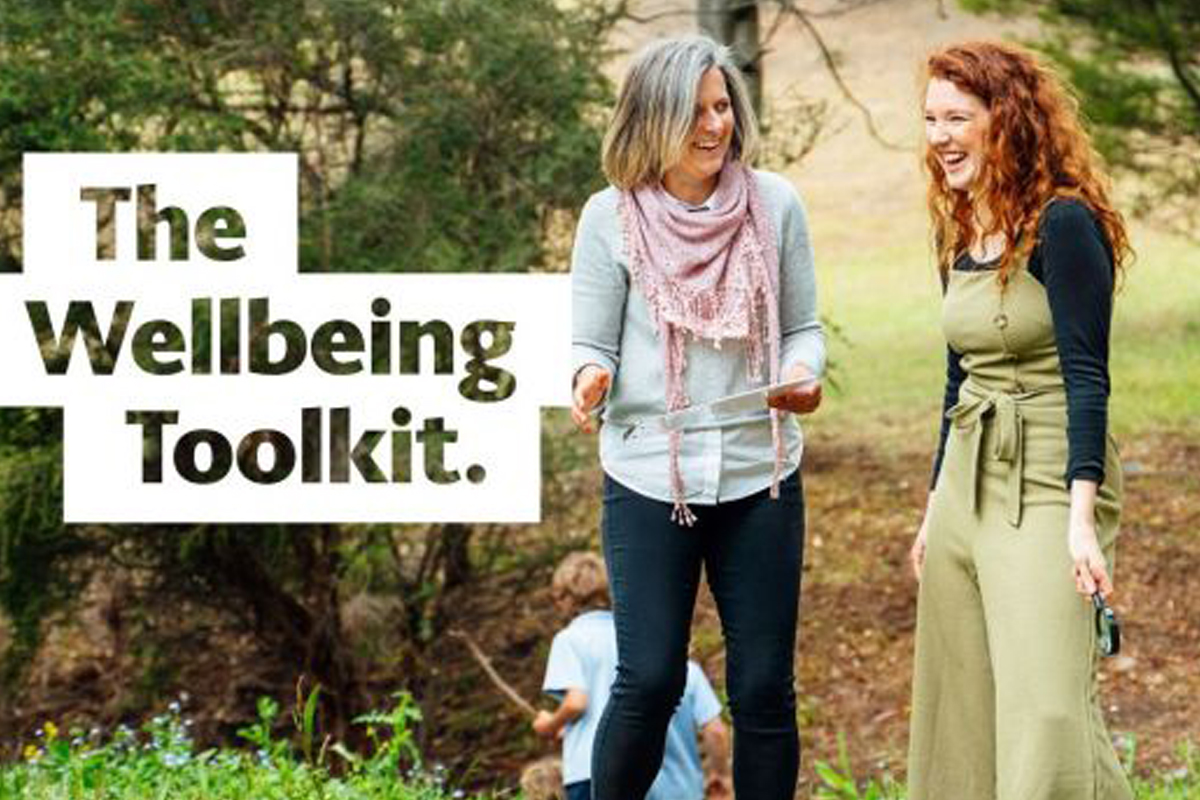
UTAS has played a key role in enabling PESRAC activities and has been and will be central to carrying out many of the recommendations both as a lead and as a partner. The Tasmania Project (TTP), a program of research conducted by the Institute for Social Change at the University of Tasmania, was set up based on a request from PESRAC with support from our VC to give Tasmanians a voice and to gather important information during and beyond the pandemic to feed into PESRAC recommendations. The project supports positive social change by bringing together researchers from a diverse range of disciplines with partners in community, government, and industry. TTP’s focus is on gathering information and providing resources to help Tasmanians work together through the pandemic and support recovery for a strong future. The research comprised an online survey and a series of in-depth interviews and was organised around the idea of ‘What makes a good life in Tasmania?’, with questions about present and future wellbeing (adapting indicators from the OECD Better Life Index) and Tasmania’s recovery from COVID-19. More than 2300 Tasmanian residents completed the survey, and this was supplemented with in-depth interviews with 23 under 30-year-olds.
The immediate need identified by the TTP was to address the health and wellbeing of Tasmanians during the pandemic, so UTAS undertook to rapidly develop a Wellbeing Toolkit that was made available free of charge to all Tasmanians. The Toolkit offers a range of modules covering topics including financial planning and budgeting, mental health and resilience, sustainable living, and creativity. From a UTAS media release: our VC said the University was determined to do everything it could to support the community in this difficult, anxious time. “COVID-19 has changed Tasmanian lives dramatically – our family, social and working lives are profoundly different to just a few short weeks ago,” Professor Black said. “People are facing economic challenges, stress and uncertainty, and long stretches of time at home – with family or alone – juggling new and changing responsibilities. “Learning can help at times like these. We have put together a toolkit that people can study online, at their own pace, to give them knowledge and skills to understand and meet some of the challenges they face.” “As a university, the most powerful tool we can use to help Tasmanians is education,” Professor Black said. “Through education, we can help build a more confident and resilient community, providing people with practical skills and knowledge to help navigate this period and beyond.”
The risks of digital exclusion was another TTP finding that informed the PESRAC recommendations to treat digital access just like physical access such as roads and pathways that allow participation in life and work. UTAS has addressed digital deficits for our students during the pandemic through access to equipment and a rapid-fire transition to online learning through actions of our award-winning staff and students. For example, Richard Siu (Green Impact Student Champion Award 2021) led establishment of a program to re-use out of warranty computers rather than sending them away as e-waste. UTAS Sustainability staff, Sustainability Integration Program for Students (SIPS) interns and senior IT managers developed a process to wipe and donate those devices to students in need. Donations are run by the Tasmanian University Student Association (TUSA). During COVID-19 lockdown, campuses were closed, and students studied online. Those without their own computer who would normally rely on on-campus computers were disadvantaged. The program and store of computers proved critical to support an initial bulk donation of 70 computers given to students with urgent needs. The number of computers donated has steadily grown in a continuing program to run into the future. These computers are not only for educational use. For example, international students unable to return home due to border closures were able to use the devices to keep in touch with loved ones, which is crucial to their health and wellbeing, and ongoing access to higher education in Australia.
A TTP/Tasmanian Department of State Growth study of Tasmanians working in the creative and cultural industries helped researchers and policymakers understand the impact of COVID-19 on the sector. Professor Libby Lester, Director of the Institute for Social Change, said the study was designed specifically for Tasmania to support a targeted policy approach. “This research is especially important because Tasmania has one of the highest rates of work participation in creative and cultural fields nationally, and artists and cultural events are key elements of the Tasmanian brand and visitor economy. “The COVID-19 experience has highlighted the need for the sector to accelerate the development of a range of business models for digital delivery of art, music, events and other cultural and creative activities,” she said.
To help Tasmanians overcome the employment challenges created by COVID-19, UTAS developed the Work-Ready Toolkit. Following the successful community uptake of the UTAS Wellbeing Toolkit, the Work-Ready Toolkit covers a range of vital workplace topics such as networking, teamwork, interviewing skills and CV writing. The toolkit is delivered fully online, with no cost or tuition fees to help people and businesses prepare for the post-COVID world.
To deliver on PESRAC recommendations regarding skilling for recovery and supported by the Federal Government’s Higher Education Relief Package, UTAS has also created a range of subsidised six-month, job-ready courses designed to meet the needs of the community and the needs of individuals. These include certificates in counselling, education, small business, creative arts and health, equipment design and project management, agribusiness, science, and university preparation.
UTAS also partnered with the Australian Red Cross to address the needs of work placements for social work students while supporting the community’s recovery from COVID-19. The Head of Social Work at the University, Dr Sonya Stanford, said identifying placement opportunities during a pandemic had begun as a challenge due to social distancing and other restrictions. “We are excited about how we have managed to change the structure and organisation of placements to work with the community to respond to the coronavirus,” Dr Stanford said. “We want to maximise the contribution our students can make to the COVID-19 response now and the recovery into the future. The students will work in teams – in virtual student units – and have the guidance of both the University and Red Cross as they undertake this work. We feel very fortunate to be able to provide this extra layer of support in what is a very difficult time for many people.”
The Director of Red Cross in Tasmania, Sharon Wachtel, said her organisation saw the MOU and support for the COVID response as the first step in a long-term relationship between Red Cross and the University’s social work program. “This is a way for us to work together to engage students in undertaking humanitarian action,” she said. Further, “We are delighted to be able to establish such a meaningful link between academic education and industry practice.”
With a significant portion of the Tasmanian population being functionally illiterate (~50%) and even more functionally innumerate, the threat of negative impacts to education initiatives and outcomes underway to address the problem led UTAS to ramp up efforts to support keeping students engaged during the pandemic and into the future. The UTAS Peter Underwood Centre for Educational Attainment established UCTV Alive for Kids as a vehicle to provide children and young people with fun, home-based extra-curricular learning. UTAS also produces The Wonder Weekly, which is available through our social media channels and a print version distributed by Woolworths supermarkets statewide.
Food security issues were also exacerbated during the pandemic and beyond, both within the general population and UTAS students. These findings were from both TTP and the UTAS Sustainability Surveys, both run in the early stages of the pandemic in 2020. The findings showed that before the pandemic 6-11% of Tasmanians were food-insecure, but during the pandemic this rose to 31-59%. In response and specifically for our students, UTAS set up several initiatives to ensure students could get access to healthy and sustainable food. These initiatives have informed our longer-term efforts to develop a food strategy that includes campus-based food systems. This is exemplified by the 2020 commitment to make a massive community garden central and integral to our new Inveresk campus as well as supported the hiring of a fulltime horticulturalist and community garden coordinator within the Sustainability Team in 2021. The findings have also influenced the new UTAS catering model regarding availability, cost, and sustainability of food on offer.
To support longer-term wellbeing and a return from COVID-19 isolation, UTAS developed a resource, The Path Back from Social Isolation, to offer perspectives on what to expect and practical ways of supporting employees and each other through this period. A short course provides further public information and support.
UTAS also hosts the Australian Disability Clearinghouse of Education and Training (ADCET), which developed new national disability guidelines to ensure the safety of tertiary staff and students with disability during return-to-campus stages. Drawing on experiences and expertise from across Australian vocational education and training (VET) and higher education providers, the guidelines are designed to complement tertiary education providers’ general return to campus approaches.
A UTAS researcher is also at the forefront with the Institute for Place Management in exploring the recovery options for our CBDs and retail centres with changes in behaviour during and after COVID-19, including the rise of online shopping, rolling lock-downs, a flat economy and changing consumer shopping habits.
Also recognising the University’s role in shaping a better and more resilient future has helped clarify policy settings and commitments made in 2020, including in our investments approach and our build environment program. In October 2020, UTAS announced a commitment to support the creation of a zero-carbon economy that included the delivery of a plan for complete divestment from fossil fuel-exposed investment funds in 2021. It also goes beyond the expected negative investment screen for fossil fuels to include a positive screen for companies and funds that contribute to the UN SDGs.
With over $800m committed to developing new campuses across the state over a 10-year period, the positive impact of a focus on sustainable development is clear. A 10-year program delivering key new infrastructure to support the focus on education to literally build back better across all three Tasmanian regions spreads the spending spatially and temporally. Requirements in our building contracts to include more apprenticeships and training opportunities has been a key initiative. Ensuring we are also delivering cutting edge sustainable buildings serves to upskill our workforce in delivering such structures, but also showcases what it possible for other developments in Tasmania. Key examples are the first green roof on a public building in Tasmania and a minimum 25% reduction target in embodied carbon emissions in all new buildings with UTAS already achieving a 34% reduction in two new buildings under construction in Launceston.
Finally, to not lose the opportunity to document pandemic experiences and lessons, a group of UTAS students have worked to archive these experiences for future generations. The UTAS School of Humanities COVID-19 archive collection ‘Stories from beyond the Moat’ is curated on Instagram and added to the international A Journal of the Plague of the Year, which has contributions from universities globally to create an archive of COVID-19 experiences for future generations.
> Environmental and social benefits
As noted in the initiative description above, there are a wide range of social outcomes from our activities as we very much take our mission to heart to be a university FOR Tasmania. Direct environmental outcomes were also touched on, such as re-using computers and avoiding food waste. While we are certain most universities were focused on engaging with and supporting their communities through and beyond the pandemic, the breadth and scale (a whole state) of our focus and activities does stand out in the way we pivoted our business-as-usual activities and started whole new approaches, initiatives, and programs to support our communities.
> Leadership and engagement
UTAS has elevated sustainability to the fore internally and delivers sector and community leadership. Sustainability is embedded across College and Divisional strategic plans and in governance instruments (e.g., policy, risk appetite guidance). UTAS has provided strategic funding for staff, projects, and students to deliver rapid step change in the past 15 months that dwarfs what was provided for eight years of incremental improvements. On a maturity scale, UTAS went from average in 2019 to major achiever by 2021. Our STARS rating and other assessments identified performance gaps and clarified a collective understanding of those gaps that has supported a structured and resourced near-term approach within current UTAS management systems. The early 2022 goal set by our leadership team to achieve ‘a good base level’ (translating to STARS Gold rating) is commitment in action and recognition this is just a step on our journey. A Platinum rating by 2024 goal is already driving continued focus and embedding sustainability systemically.
> Wider societal impact
Our activities are not just internally or sector focused. UTAS exists for Tasmania and the world, as clearly stated in our University Strategy document. That is, our endeavours are expected to deliver positive impacts across all our activities. For example, sharing sustainability-related data and research with our broader communities has also led to impactful partnerships and addressing issues. Our contributions via The Tasmania Project and PESRAC were described above. It can also be noted that our 10 years of Travel Behaviour Surveys data has been instrumental in shared resources with state and local governments as well as NGOs to better understand the changes in travel behaviour and choices before, during and after the pandemic that will be useful in planning for the future as well as coming up with ways to secure the positive impacts while addressing the negative (e.g., less public transport use). We clearly state and actively support student and staff involvement in our journey to be a leading sustainable university. Student voices are encouraged and heard across many areas. For example, our Sustainability Survey uncovered a broader student food insecurity issue than thought, especially influenced by the pandemic, that allowed us to rapidly set up food relief activities in partnership with the Tasmanian University Student Association.
Furthermore, with many of our SIPS projects focused on food security and wellbeing during 2020-21, we know that these students will carry their passion and learnings to jobs and communities, resulting in flow-on impacts to the wider society.




